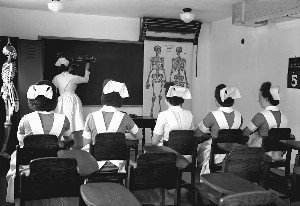Santoso Wuryandoko, Maryanto Maryanto, Ghufron Abdullah
The Influence of Learning Community On Pedagogical Competence Of Public Elementary School Teachers
Introduction
The influence of learning community on pedagogical competence of public elementary school teachers. Explore how learning communities enhance pedagogical competence among public elementary school teachers in Japah District. Quantitative study shows a significant positive impact.
Abstract
Teacher pedagogical competence is their ability to manage learning comprehensively, including understanding students; planning; implementing; evaluating; utilizing technology; and developing student potential to achieve optimal learning outcomes. Teacher pedagogical competence is influenced by internal and external factors, one of which is participation in a learning community. This study aims to determine and analyze the influence of learning communities on the pedagogical competence of elementary school teachers in Japah District, Blora Regency. This study has a novelty by integrating learning communities with teacher pedagogical competence, which has not been widely studied in elementary school teachers in Japah District, Blora Regency, thus providing a more comprehensive understanding of the factors that influence teacher pedagogical competence in elementary schools. This study uses a quantitative method with data collection through distributing questionnaires with a sample of 130 respondents. The results of the study showed that learning communities have a positive and significant effect on teacher pedagogical competence. From the results of the study, it can be concluded that the learning community has a positive effect with a correlation coefficient of 0.364 or 36.4% on teacher pedagogical competence and the remaining 63.6% is influenced by other factors that were not studied. The learning community is the most dominant variable with an effective contribution (SE) of 14.6%.
Review
This study investigates the crucial relationship between participation in learning communities and the pedagogical competence of public elementary school teachers, specifically focusing on a local context within Japah District, Blora Regency. Employing a quantitative methodology with data collected through questionnaires from a sample of 130 teachers, the authors aim to ascertain the extent to which learning communities influence teachers' abilities in managing comprehensive learning processes. The core finding indicates a positive and statistically significant effect of learning communities on teacher pedagogical competence, suggesting that such collaborative environments play a beneficial role in professional development. The paper presents a clear novelty by focusing on this specific integration within the understudied context of elementary school teachers in Japah District, providing valuable localized insights. The comprehensive definition of pedagogical competence provided also sets a strong foundation for the study's scope. While the finding of a positive and significant effect is robust, the abstract highlights that the learning community accounts for approximately 36.4% of the variance in pedagogical competence, with a notable 63.6% attributed to other unstudied factors. This raises an interesting point regarding the multifaceted nature of pedagogical development, and a more detailed discussion of these 'other factors' would be a natural extension for future research. Furthermore, the mention of an 'effective contribution (SE) of 14.6%' for the learning community could benefit from further elaboration in the main text regarding its precise statistical interpretation and practical implications for educators. Overall, this study makes a valuable contribution to the understanding of factors influencing teacher professional development, particularly in elementary education. By empirically demonstrating the positive impact of learning communities, the research provides a strong argument for the promotion and integration of such collaborative platforms within educational policy and practice. The findings underscore the importance of fostering environments where teachers can continuously learn, share, and refine their pedagogical skills, ultimately aiming to improve teacher quality and, consequently, student learning outcomes in similar contexts.
Full Text
You need to be logged in to view the full text and Download file of this article - The Influence of Learning Community On Pedagogical Competence Of Public Elementary School Teachers from Lembaran Ilmu Kependidikan .
Login to View Full Text And DownloadComments
You need to be logged in to post a comment.
Top Blogs by Rating
The Silent Language of Your Bo...
By Sciaria
When Your Spirit Contradicts Y...
By Sciaria
Materials That Remember: The I...
By Sciaria
Favorite Blog
The Material Renaissance: How...
By Sciaria
The Invisible Load: Unveiling...
By Sciaria
Unveiling the Hidden Journeys:...
By Sciaria
Related Research
Pendekatan kontekstual dalam pembelajaran pendidikan agama islam melalui metode karyawisata
Menguak rahasia tafsir falsafi: sejarah, metode dan tokoh-tokoh berpengaruh
Linking eu strategic goals with national budgets
Share
Notice Board
- FRAMING HUMAN-CROCODILE CONFLICT: A QUANTITATIVE CONTENT ANALYSIS ON DETIK.COM ONLINE MEDIA
- INTEGRASI UNSUR ESTETIS DAN IBADAH KREATIF KARISMATIK: KAJIAN TEOLOGI ATAS PERAN DAN KETERLIBATAN GENERASI MUDA DI GEREJA LOKAL
- STUDI KASUS PENERAPAN INTERVENSI KEPERAWATAN TERAPI COOPERATIVE PLAY UNTUK MENGATASI GANGGUAN INTERAKSI SOSIAL PADA ANAK





